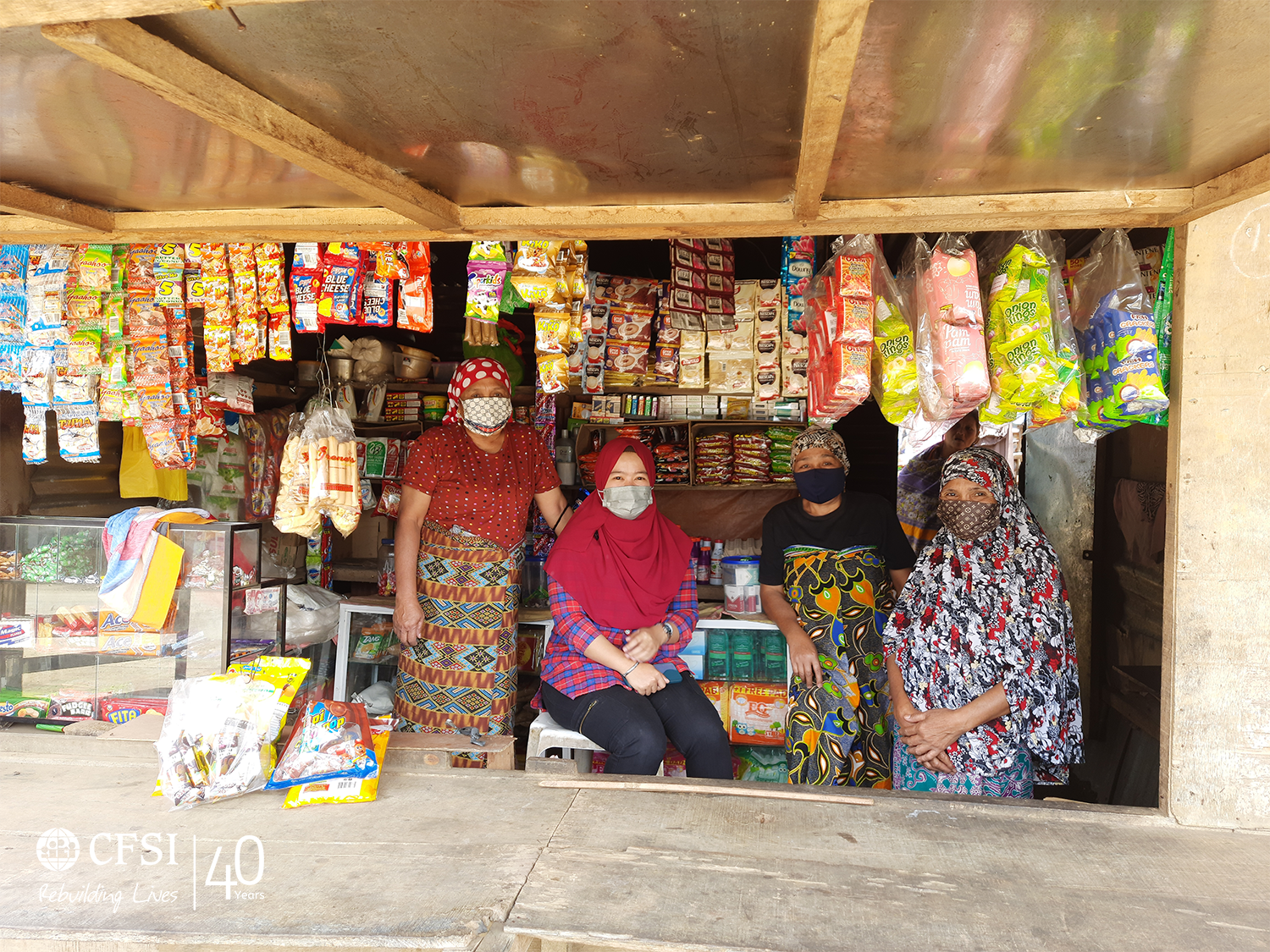Minang Macaantal, 57, has been widowed for 21 years and has been raising her three children alone. She lives with the families of her two sisters in Barangay Papandayan, Marawi City in Mindanao, Philippines. Both sisters are also single mothers.
As if raising children on her own is not hard enough, Minang had added struggle with keeping her livelihood amidst the pandemic, a small carinderia (food store), that eventually went downhill because of the movement restrictions and community quarantines imposed in the area.
With restrictions becoming more relaxed in 2021, Minang is reopening her store and was supported by the Marawi COVID Recovery Project (MCRP) where she received new food vending set.
“At the end of September this year, I will open my food store again. I hope to use the income to support my children’s schooling and buy school supplies for them,” Minang said. She will be selling street food like tempura, kwek-kwek (fried quail eggs), and fish ball.
MCRP is implemented by Community and Family Services International (CFSI) to deliver life-saving services to the affected population of Marawi City and Lanao del Sur Province in the middle of the pandemic. It is an additional support to the ongoing Marawi Recovery Project (MRP) that provides protection, psychosocial, and livelihood support recovery to at least 6,500 households affected by the Marawi crisis.
Minang and her sisters Api and Amina are project participants of the projects.
Api, 49, was also ordered to close her store last year during the early days of the pandemic with the strictest restrictions. But without any other means to feed her family, she had to secretly crack open a small portion of her store to sell some essential household goods to neighbors.
“That time, we only rely on relief goods. We did our best not to touch our merchandise because we need to sell it,” Api shared.
Her store that once earns at least Php1,000 (USD20.00) a day can only profit about Php300 (USD6.00) during the lockdown.
In June 2021, Api also received additional support from MCRP to restock supplies in her store. She was able to fully open the store again and had her capital grow, she shared.

From left to right: Api Macaantal; Fatimah Desimbarun, CFSI Field Assistant; Amina; and Minang Macaantal in Api’s store in Barangay Papandayan. Api’s store is free to open again after the lockdown.
Amina, on the other hand, also received additional food vending set to get her business running again.
Aside from livelihood support, CFSI has also assisted Minang and her children on birth registration through MRP. The Certificates of Live Birth of the three children were helpful to officially enroll in school. They are currently doing modular learning at home.
MRP and MCRP are both implemented with support from the Australian Government’s Department of Foreign Affairs and Trade. Both aim to provide aid in the recovery of residents from the Marawi crisis and the effects of the global pandemic. #

